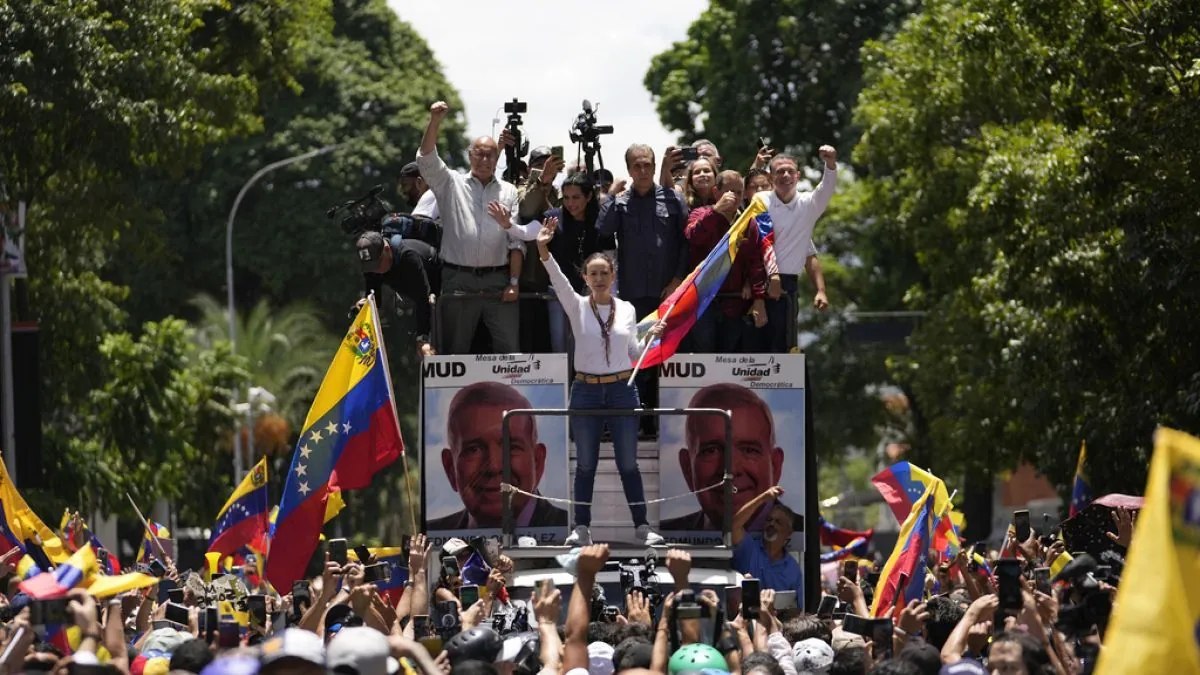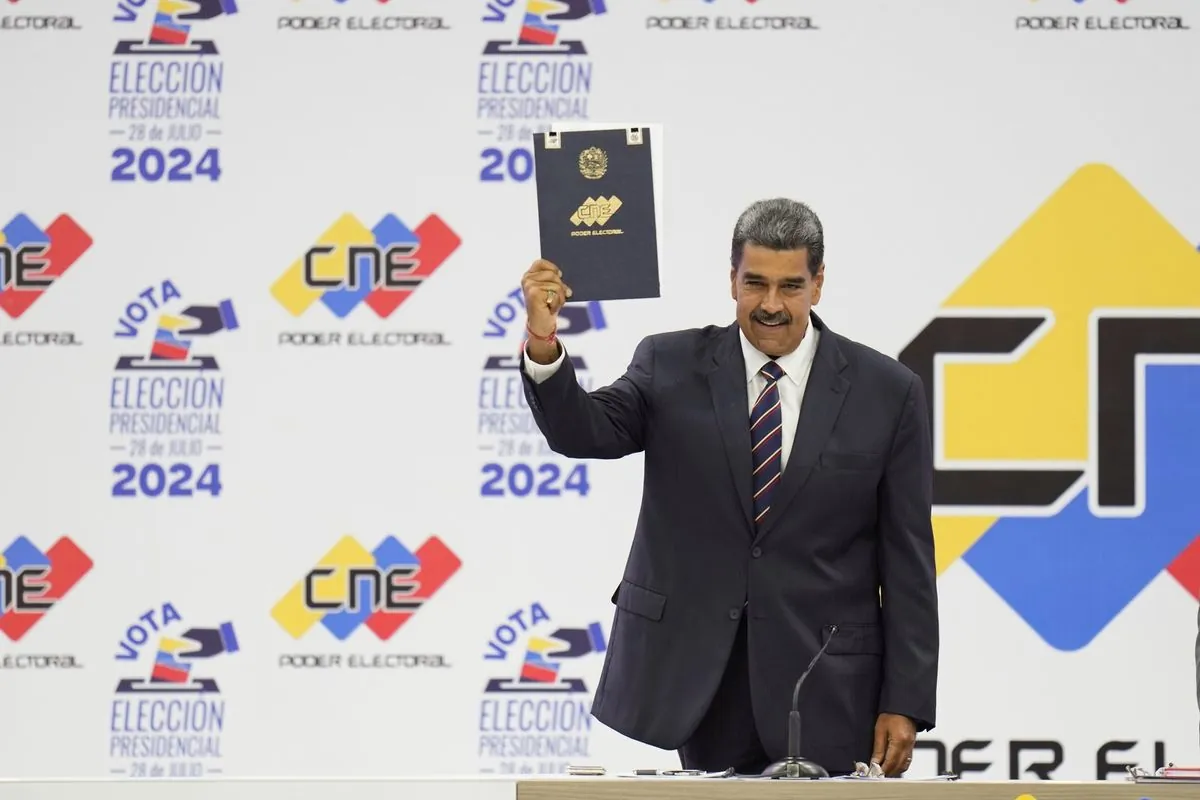Venezuela Seeks Arrest of Opposition Leader Amid Election Dispute
Venezuelan authorities pursue arrest warrant for former presidential candidate Edmundo González following contested election. Opposition claims evidence of Maduro's defeat amid international criticism.

In a significant development in Venezuela's ongoing political turmoil, authorities have initiated legal action against Edmundo González, the opposition's former presidential candidate. This move comes approximately five weeks after the controversial July 28, 2024 presidential election, which has been marred by allegations of irregularities and lack of transparency.
The prosecutor's office has requested an arrest warrant for González, citing various charges including terrorism-related crimes, conspiracy, document falsification, and usurpation of powers. This legal action intensifies the already tense political climate in a country grappling with severe economic challenges and international scrutiny.
Venezuela, once among Latin America's wealthiest nations, has been embroiled in a prolonged crisis since 2010. The country, despite possessing the world's largest proven oil reserves, has experienced hyperinflation of its currency, the bolívar, and widespread shortages of essential goods.
Nicolás Maduro, who has held the presidency since 2013, was declared the winner of the recent election by the electoral authorities aligned with the ruling party. However, the opposition contests this outcome, claiming to possess evidence that contradicts the official results.

The opposition asserts that they have obtained over 80% of the vote tally sheets from electronic voting machines, which allegedly demonstrate a significant defeat for Maduro. This claim adds fuel to the ongoing dispute over the election's legitimacy.
International observers have repeatedly criticized Venezuelan elections for irregularities, and this latest poll has drawn widespread condemnation due to the lack of transparency in result reporting. Unlike previous presidential elections, detailed results were not provided to support the declaration of Maduro's victory.
Venezuela's political landscape has been further complicated by mass emigration, with millions leaving the country due to the ongoing crisis. The nation's heavy reliance on oil exports has made it vulnerable to economic fluctuations, while U.S. sanctions on the government and key officials have added to the challenges.
As Venezuela navigates this latest political storm, the international community watches closely. The country's ties with nations like Russia, China, and Cuba contrast sharply with its strained relations with Western democracies, highlighting the global dimensions of this local conflict.
"The results of the July 28 presidential election have been verified and certified in accordance with our electoral laws and procedures."
This unfolding situation underscores the complex interplay of political, economic, and social factors in Venezuela, a founding member of OPEC, as it struggles to maintain stability and address the needs of its citizens amidst accusations of human rights violations and democratic backsliding.


































